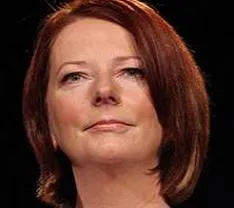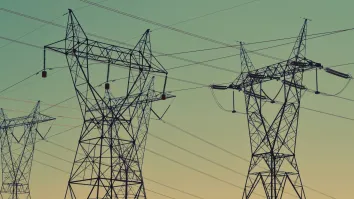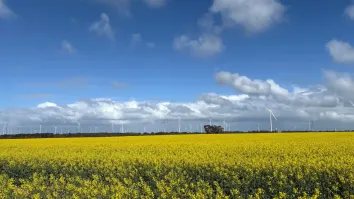
Gillard to lead carbon cap revival in Australia
The Australian prime minister plans to make factories either cut the nation’s greenhouse gases or pay for pollution-curbing programs abroad, according to a Bloomberg report.
Julia Gillard, determined to join efforts to reduce global warming, intends to revive cap and trade as Europe puts curbs on the United Nations-run emissions credit market and the U.S. opts out entirely.
The Australian prime minister’s plan to make factories and utilities either cut the nation’s greenhouse gases or pay for pollution-curbing programs abroad may force companies to buy an average 66 million metric tons of credits a year starting in 2015, sending prices up 28 percent, according to Bloomberg New Energy Finance. That’s about two-thirds of Europe’s annual demand since 2008.
By pushing Australia into carbon trading, Gillard is seeking to satisfy Greens party members of her Labor-led coalition while breathing new life into a market that’s floundering elsewhere. The European Union is setting limits on UN credits to draw in less-developed nations. The U.S. rejected a federal cap-and-trade program for emissions last year.
“If the Australian program passes, it’s going to provide the UN carbon market with a much-needed shot in the arm,” Abyd Karmali, the London-based global head of carbon markets at Bank of America Corp., said in a Sept. 2 telephone interview.
Mixed Success
Prices have tumbled in the past two years as nations such as China and India flooded the market with credits awarded for setting up their own clean projects. UN Certified Emission Reductions, or CERs, for December delivery, fell to 7.40 euros ($10.48) a ton on the ICE Futures Europe exchange in London on Aug. 5, the lowest level since February 2009. Global demand for credits will fall behind supply as targets set in Japan under the 1997 Kyoto Protocol expire next year, according to New Energy Finance.
Attempts to establish market-based systems to curb pollution have had mixed success since the Kyoto agreement, which sought to link regional carbon markets and channel money from developed to emerging markets.
The U.S. shelved proposals in 2010 to start a program after Congress blocked it because of costs and doubts about global warming. China says it will set up pilot projects in six cities starting in 2013 to prepare for a nationwide program. South Korea plans to cap emissions for its 500 largest polluters starting in 2013.
Rising Temperatures
“We would like to give global assistance to provide support for green-growth efforts in developing countries as a bridge builder between developing and developed countries,” Son Sung Hwan, South Korea’s Ambassador for Climate Change, said today at a conference in Seoul.
Average temperatures around the world last year tied with 2005 as the warmest on record, according to the National Oceanic and Atmospheric Administration in Washington. Emissions from electricity generation climbed to an unprecedented 30.6 billion tons in 2010, the International Energy Agency, the Paris-based adviser to 28 nations, said in a May report.
The Australian proposals are “stupid,” Mick Davis, chief executive officer of Zug, Switzerland-based Xstrata Plc, the world’s biggest thermal-coal exporter, told analysts on an Aug. 2 conference call. The company, with 18,986 employees and contractors in Australasia, would probably lose sales to less- restrictive nations such as Indonesia, he said.
‘Important Step’
Australia’s system will mirror the one in Europe, which has become the world’s biggest since it began in 2005. The region runs a cap-and-trade program, so-called because it caps emissions for more than 11,000 polluters while encouraging them to trade spare permits allocated by governments. Companies from Royal Dutch Shell Plc to Electricite de France SA may also compensate for, or offset, their emissions by financing clean-up projects in developing countries under the UN program.
“Australia’s decision to put a price on carbon emissions is an important step, both environmentally and economically,” European Commission President Jose Barroso said today in a speech in Sydney. “We will now continue our joint work for a global climate regime and discuss how we could gradually link up our emissions trading systems in the future.”
Even so, EU use of UN credits will plunge 63 percent when new restrictions begin in 2013, dropping to 150 million tons from 400 million tons in 2012, Trevor Sikorski, an analyst at Barclays Plc in London, said in an Aug. 24 note. Regulators in January decided to curb use of some credits, saying they are too easy to get and faster-growing nations such as China and India should pay for more of their own pollution.
‘Most Expensive Disaster’
With 23 million people, a third fewer than California, Australia is the world’s largest exporter of coal and gets 80 percent of its power from the raw material. When floods this year in the state of Queensland killed 37 people and disrupted coal production, Gillard called it the nation’s “most expensive natural disaster.”
The proposals have yet to convince some of the biggest mining companies. Anglo American Plc, based in London and the world’s third-largest producer of coal for steelmaking, said in June the government program would throw into doubt the company’s $4 billion plan to expand in Australia. The Minerals Council of Australia says the initiative would destroy 126,000 jobs and threaten investment.
Gillard, 49, Australia’s first female prime minister, needs to overcome opposition from her own party to pass the plan at a time when her support is falling. Her satisfaction rating in polls is 23 percent, compared with 48 percent last September. Kevin Rudd, who Gillard replaced last year, lost support amid an earlier debate on climate proposals.
Price Gains
This is “the largest economic and environmental reform for a generation,” Anthony Hobley, global head of carbon finance in Sydney at the law firm Norton Rose LLP, wrote in a July note.
UN prices will rise to 11 euros a ton ($15.58) by 2016 from today’s 8.60 euros should the plan get approved by the Parliament, according to New Energy Finance. They will drop 23 percent if Gillard fails, it estimates.
At the same time, Gillard is under pressure to support the measures that the opposition says will boost household electricity bills by A$700 a year in order to keep together her coalition with members of the Greens party.
Australia will meet its target for a 5 percent reduction in emissions by 2020 as polluters purchase offset credits from overseas that year, according to the Australian Treasury department. The plan allows the nation to increase emissions by 7.4 percent in the next decade, the department says. The Reserve Bank of Australia said Aug. 5 the carbon tax will add 0.7 percent to the nation’s wholesale and consumer prices.
Photo from MystifyMe Concert Photography



















 Advertise
Advertise





